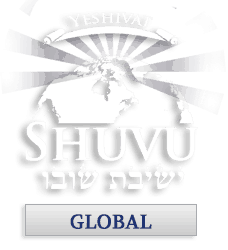וָאֲצַוֶּה֙ אֶת־שֹׁ֣פְטֵיכֶ֔ם בָּעֵ֥ת הַהִ֖וא לֵאמֹ֑ר שָׁמֹ֤עַ בֵּֽין־אֲחֵיכֶם֙ וּשְׁפַטְתֶּ֣ם צֶ֔דֶק בֵּֽין־אִ֥ישׁ וּבֵֽין־אָחִ֖יו וּבֵ֥ין גֵּרֽוֹ: לֹֽא־תַכִּ֨ירוּ פָנִ֜ים בַּמִּשְׁפָּ֗ט כַּקָּטֹ֤ן כַּגָּדֹל֙ תִּשְׁמָע֔וּן לֹ֤א תָג֨וּרוּ֙ מִפְּנֵי־אִ֔ישׁ כִּ֥י הַמִּשְׁפָּ֖ט לֵֽאלֹהִ֣ים ה֑וּא וְהַדָּבָר֙ אֲשֶׁ֣ר יִקְשֶׁ֣ה מִכֶּ֔ם תַּקְרִב֥וּן אֵלַ֖י וּשְׁמַעְתִּֽיו:
And I commanded your judges at that time, saying, “Hear [disputes] between your brothers and judge justly between a man and his brother, and between his litigant. You shall not favor persons in judgment; [rather] you shall hear the small just as the great; you shall not fear any man, for the judgment is upon the Lord, and the case that is too difficult for you, bring to me, and I will hear it.”
Devarim 1:16-17
This week we begin the book of Devarim. The historical narratives of the Torah are over and the children of Israel are gathered together and ready to enter the land of the promise. Moshe, however, is not allowed to enter the land. The scene is set for Moshe to deliver the great sermon to the children of Israel. The book of Devarim recounts the journey of the people of Hashem from slavery to freedom, from being a rabble to becoming a Nation. Moshe is not allowed to enter the land, so he spends a lot of time in the sermon rebuking the children of Israel for their behavior. Moshe also repeats many of the commandments that Hashem has given the children of Israel.
During this recap, Moshe retells for the children of Israel the appointing of judges. Devarim 1:13 tells us that the children of Israel themselves choose men of wisdom and understanding to be these judges. Their function is to resolve disputes between brothers. Disputes about what? Disputes about the Torah. In other words, these judges are to resolve questions of Halacha that come up within the Nation of Israel.
Many times in our “modern” understanding of Torah, we try to break down the mitzvot into different categories. Some are, we say, “ceremonial commandments,” some are “judgment commandments,” some are “vestigial commandments.” In doing so, we try to make certain commandments more important, and diminish the importance of other commandments. For instance, we say that there are only two really important commandments, love Hashem and love your neighbor is yourself. This is however, not what Yeshua taught.
“Don’t think that I have come to abolish the Torah or the Prophets. I have come not to abolish but to complete.Yes indeed! I tell you that until heaven and earth pass away, not so much as a yud or a stroke will pass from the Torah — not until everything that must happen has happened. So whoever disobeys the least of these mitzvot and teaches others to do so will be called the least in the Kingdom of Heaven. But whoever obeys them and so teaches will be called great in the Kingdom of Heaven.
Matthew 5:17-19
Yeshua is clear, all the commandments are important. Therefore, the function of the judges in determining for all of Israel how Israel is to follow the commandments is very important.
Verse 16 explains that Moshe tells the judges they are to שָׁמֹ֤עַ, that is, hear (disputes). The word hear is in the present participle. The idea is that the action of hearing is an action that is continuing, even until today. Moshe, under instructions from Hashem, creates the system that Israel will use to determine how Israel will follow Hashem’s commandments. The system of halacha is established as instructed by Hashem. It is important to see that these are men of wisdom and understanding that are appointed judges. Hashem does not dictate to individuals within Israel how Torah is to be followed, rather, Torah is to be interpreted by judges who are chosen by the children of Israel. Understanding the function of practical Torah comes from men of wisdom within Israel. Practical Torah, that is, how to apply the Torah that was given from the mouth of God and the hand of Moshe, is determined by judges through the process of dispute. This process of the development of understanding Halacha continues to be passed down within the children of Israel until the time of Ezra. Ezra refines this process and set in motion the methodology for developing the halacha that we have today. All of this began with the children of Israel in the wilderness as retold by Moshe Rabeinu in his great sermon, the book of Devarim.
